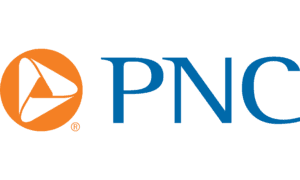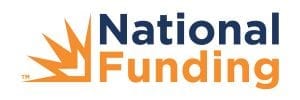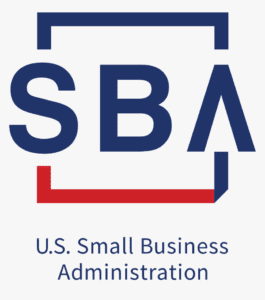How To Get A Secured Business Loan in 2023
Secured business loans use collateral to reduce lender risk, allowing small business owners to potentially unlock more attractive rates and terms.
Collateral can include cash deposits, business assets or real estate. But if you fail to repay the loan, the lender can seize the collateral to recoup its losses.
On this page
What is a secured loan?
A secured loan is a form of a collateral loan that minimizes the risk to a lender. Collateral is typically an asset that the lender can possess if you default on the loan. For small businesses, assets like equipment, cash savings or real estate will often serve as collateral for secured business loans.
Since the collateral acts as a guarantee for the funds, startup businesses and those needing a bad credit business loan may have better success obtaining a secured business loan over an unsecured loan.
Best secured business loans in 2023
Here’s a list of our top lenders offering secured business loans.
Bank of America: Best for established businesses
![]()
| Loan amounts | Starting at $25,000 |
| Term length |
|
| Est. interest rate | Starting at 7.25% |
| Min. requirements |
|
| Time to funding | Not disclosed |
In-person customer service (if a branch is near you)
Occasionally offers reduced introductory rates and waived fees
Cons
High fees (outside special promotions)
Not ideal for startups
Bank of America offers secured business loans and lines of credit. While interest rates are low, you must pay an origination fee of 0.50% of the total loan amount for term loans, and at least $150 in upfront and renewal fees for a business line of credit. Going with a traditional bank has certain advantages, such as access to savings accounts, personal loans and in-person support.
Startups would need to look elsewhere since this bank requires a minimum of two years in business plus at least $250,000 in annual revenue to qualify.
Funding Circle: Best for business term loans

| Loan amounts | $25,000 to $500,000 |
| Term length | 6 months to 84 months |
| Est. interest rate | 11.29% to 30.12% for term loans |
| Min. requirements |
|
| Time to funding | One to five business days |
Dedicated account manager to help your business succeed
Fast funding times
Cons
Not available in Nevada
Not ideal for startups
Funding Circle offers a secured business term loan ranging from $25,000 to $500,000. If approved, you could receive funds within one to five business days. Additionally, Funding Circle has small business loans for women and minority business loans. However, you must have a personal credit score of 660 or higher and a minimum of two years in operation to qualify.
PNC: Best for business lines of credit

| Loan amounts | $100,001 to $3,000,000 |
| Term length | Revolving |
| Est. interest rate | Variable, based on the Prime Rate |
| Min. requirements |
|
| Time to funding | Not publicly disclosed |
A traditional bank with various finance products
Monthly interest-only repayments (no defined term)
Cons
Lack of transparency about rates and fees
Long time-in-business requirement
PNC offers a secured business line of credit for $100,001 to $3,000,000. You’ll need to make monthly interest-only payments but can repay the principal at your own rate. However, it’s best to repay the principal as fast as possible to avoid extra interest charges. Collateral can include non-real estate business assets.
National Funding: Best for equipment loans

| Loan amounts | $3,000 to $150,000 |
| Term length | 24 to 60 months |
| Est. interest rate | Starting at 4.99% simple interest |
| Min. requirements |
|
| Time to funding | 24 hours |
Quick funding times
Short time-in-business requirement
Cons
Not ideal for purchases over $150,000
Annual revenue requirement not publicly disclosed
If you need to buy or replace equipment for your business, National Funding offers equipment financing up to $150,000. It’s an excellent choice for those with low or bad credit since the minimum credit requirement is 600. However, you may need to look elsewhere if you need to cover purchases over $150,000.
SBA 7(a) loans: Best for long terms

| Loan amounts | $25,000 to $5,000,000 |
| Term length | Up to 300 months |
| Est. interest rate |
|
| Min. requirements |
|
| Time to funding | 60 to 90 days, may vary depending on the SBA lender |
Capped interest rates
Long repayment terms
Cons
Long processing times
A high credit score is usually required
The U.S. Small Business Administration (SBA) works with traditional banks and alternative lenders for small business to guarantee loans for eligible small business owners. An SBA-backed loan minimizes lender risk, thus allowing borrowers access to capital when they’re ineligible for traditional funding. SBA-secured loans start at $25,000 (amounts lower than this don’t require collateral). Note that it’s recommended to have a FICO Score of 680 or higher to improve the likelihood of approval.

How to secure a business loan
There are several ways to secure business loans with collateral:
- Property: Whether it’s your home, car or commercial real estate, you could put up your property as collateral for a loan. The challenge with this form of collateral is that the value is uncertain, so your lender may require an appraisal.
- Savings: Lenders see cash as the best collateral, as its value is more liquid.
- Inventory: Similar to property, inventory is a less tangible asset than cash savings and like other forms of property, inventory may require an appraisal to count as collateral.
- Invoices: With invoice financing, you can use unpaid invoices as a form of collateral to get access to funding.
- Equipment: Equipment is another form of property for collateral. Equipment financing companies typically use the equipment you want to purchase as collateral — meaning they can repossess the equipment if you default on the loan.
- Blanket lien: A blanket lien acts as security for a loan because it will collateralize all assets of a business. It is less concrete than the other forms of collateral discussed above, because it gives the lender the legal right to seize your business assets if you default on a loan. Lenders may even apply this in addition to collateral because there are multiple assets to cover the loan amount.
Pros and cons of secured business loans
| Pros | Cons |
|---|---|
Easier to qualify for: Collateral typically allows the lender to be more lenient about requirements. More favorable terms: Lenders typically provide longer terms and possibly lower business loan interest rates Greater flexibility: Securing a loan can give you the flexibility of different business financing options like equipment loans, invoice financing, business lines of credit and business term loans. | Loss of collateral: You risk losing your collateral if you can't make payments. Slower time to funding: Because lenders need the appraisal value of your collateral, the loan can take longer to fund. Additional fees: You may have to deal with origination fees based on the amount financed. |
7 types of secured business loans and financing options
SBA loans
| Amount | Up to $5 million |
| Interest rate for 7(a) loans |
|
| Terms | Up to 25 years |
| Typical requirements | Collateral isn’t required for loans under $25,000 |
SBA loans provide lower interest rates and funding up to $5 million through the 7(a) loan program for business owners with good credit. The SBA partners with lenders to help small business owners purchase equipment, real estate or working capital.
Business term loans
| Amount | $25,000 or higher |
| Interest rate | Starting at around 6.5% APR or higher |
| Terms | 6 months to 20 years |
| Typical requirements |
|
You can cover a range of business needs with short-term business loans, from day-to-day gaps to financing growth and expansion. Both traditional banks and alternative lenders typically offer business term loans, but the main differences between the two types of lenders are the interest rates and eligibility requirements.
Traditional banks tend to offer low rates with high eligibility requirements, whereas online lenders usually have higher interest rates and lower eligibility requirements.
Equipment financing
| Amount | $5,000 to $1 million |
| Interest rate for 7(a) loans | Typically 3.49% to 28% |
| Terms | 1 to 25 years |
| Typical requirements |
|
You can use equipment loans to finance business equipment, including commercial vehicles, large printing machines and use heavy equipment financing for vehicles bulldozers. Equipment loans use the equipment you plan to purchase as collateral. They are typically fast to fund and may require a down payment of up to 20%.
Business line of credit
| Amount | Up to $10 million |
| Interest rate | Typically ranges from 2.0% to 29.90% |
| Terms | Typically 6 to 18 months |
| Typical requirements |
|
New businesses may want to consider a secured business line of credit. Business lines of credit can be a helpful financing option if you want the flexibility to withdraw as little or as much as you need. Similar to a business credit card, you’re only obligated to repay the amount you use (plus interest). They also help new businesses cover unexpected financial expenses without needing to make multiple credit inquiries.
Commercial real estate loans
| Amount | Up to $5 million |
| Interest rate | 2.2% to 18% |
| Terms | Up to 25 years |
| Typical requirements |
|
A commercial real estate loan can be used to purchase a stand-alone building, a new office space or to build an addition to your existing area. As long as you use the potential property primarily for your business, it falls under the category of commercial real estate.
Invoice financing
| Amount | Up to 97% advance on your unpaid invoices |
| Factor rate | Factor rates starting from 1.12 |
| Terms | Balance is due when the client(s) pay you |
| Typical requirements |
|
With invoice financing, your invoices act as collateral for a line of credit based on your company’s average invoice volume. Businesses can draw on the line of credit when they need additional cash to meet expenses. You’ll typically need strong credit and cash flow to qualify.
Inventory financing
| Amount | Varies, up to 80% of inventory value |
| Interest rate | Varies, based on inventory value and business risk |
| Terms | 12 months or longer |
| Typical requirements |
|
If you have unsold inventory sitting on your shelves, you may be able to leverage your inventory as collateral with inventory financing. Inventory financing is typically a short-term credit line that can be used to cover seasonal fluctuations and cash flow gaps. You’ll typically need strong credit and have to deal with higher interest rates than alternative options.
Compare secured business loans
| Lender | Best for | Minimum credit score | Loan amount | Time in business |
|---|---|---|---|---|
 | Established businesses | Not disclosed | Starting at $25,000 | Two years |
 | Business term loan | 660 | Up to $500,000 | Two years |
 | Business line of credit | Not disclosed | Up to $3,000,000 | Three years |
 | Equipment financing | 600 | Up to $150,000 | Six months |
 | Long loan terms | 680 (recommended) | Up to $5,000,000 | Typically two years |
How we chose our picks for best secured business loans
Lenders featured on our list of best secured business loans were selected based on the type of loan product, interest rates and terms and general eligibility requirements.
The loan providers included in this review meet the following criteria:
- FICO Score of 600 or higher, or not specified
- Time in business of six months or more
- Funding options above $5,000
Secured vs. unsecured business loans
An unsecured business loan is financing that doesn’t require collateral to borrow. However, unsecured loans may still require a personal guarantee or blanket lien, which obligates the borrower to repay the loan.
Because of the role collateral plays, there are a few more differences between secured and unsecured business loans:
| Secured business loan | Unsecured business loan | |
|---|---|---|
| Loan terms | Collateral can allow for longer repayment terms | Typically short term due to increased risk for the lender |
| Interest rate | Interest rates tend to be lower because of lowered risk | Typically higher interest rates because collateral mitigates the risk to lender |
| Credit score | Lenders may be more lenient on credit scores with the additional security of collateral | Lenders tend to have high credit score minimums without collateral |
Secured vs. unsecured: Which is right for my business?
Deciding between secured and unsecured business loans comes down to the funding amount you need, your credit score, your willingness to put specific business assets as collateral and if you need a fast funding business loan.
A secured business loan can help you get more funding with a lower credit score, but an unsecured loan can be faster and doesn’t require a specific asset for collateral.
